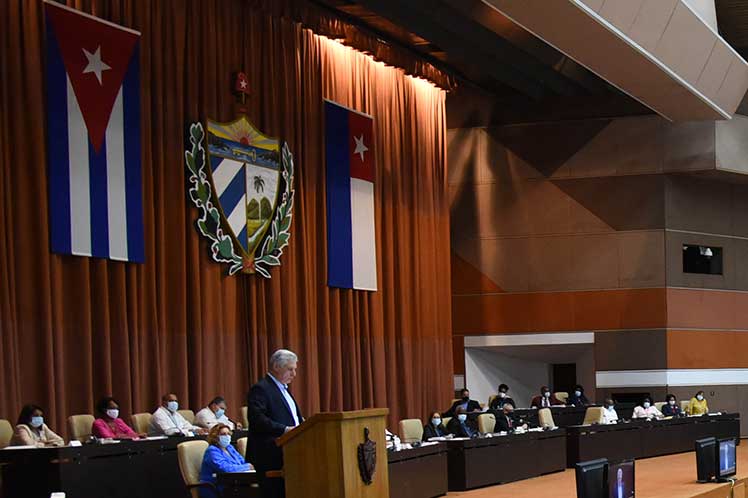Havana:Cuba advances in the consolidation of its legislative schedule after the approval on the eve of four new laws by the National Assembly of People’s Power (Parliament), in compliance with the Constitution.
During the V ordinary period of sessions of the IX legislature, the Cuban parliamentarians approved the laws of the foreign service, organization and functioning of the council of ministers, revocation of those elected to the organs of People’s Power, and the president and vice president of Republic.
The Cuban president, Miguel Díaz-Canel, acknowledged as positive the progress of the country’s law schedule despite the effects caused by Covid-19.
During the closing of the day, the Head of State stressed that the legislative exercise was accompanied by experts and the island’s population, an experience to continue and improve.
The approved regulations ensure the development of constitutional precepts concerning the higher bodies of the State and Government and guarantee the institutional order of the country, he said.
In the previous days, the deputies raised doubts and suggested modifications to the proposed laws, meeting for the first time virtually in accordance with the sanitary measures adopted in the country.
Likewise, more than 100 approaches from citizens were studied, who participated in the exercise through email and other enabled channels.
According to the president, the scenario caused by the intensification of the blockade and the impact of Covid-19 in the nation forces to accelerate the new economic and social strategy announced by the Executive.
This program is a priority in the current context that requires greater control, promoting the saving of foreign exchange and energy carriers, as well as simplifying administrative processes, he acknowledged.
Announced measures such as facilities to export and import, elements related to non-state forms and local development directives for a stronger business fabric are now indispensable, the head of state explained.
During this period of the Parliament, a group of new deputies took office and endorsed the agreements and decree laws adopted by the Council of State.





